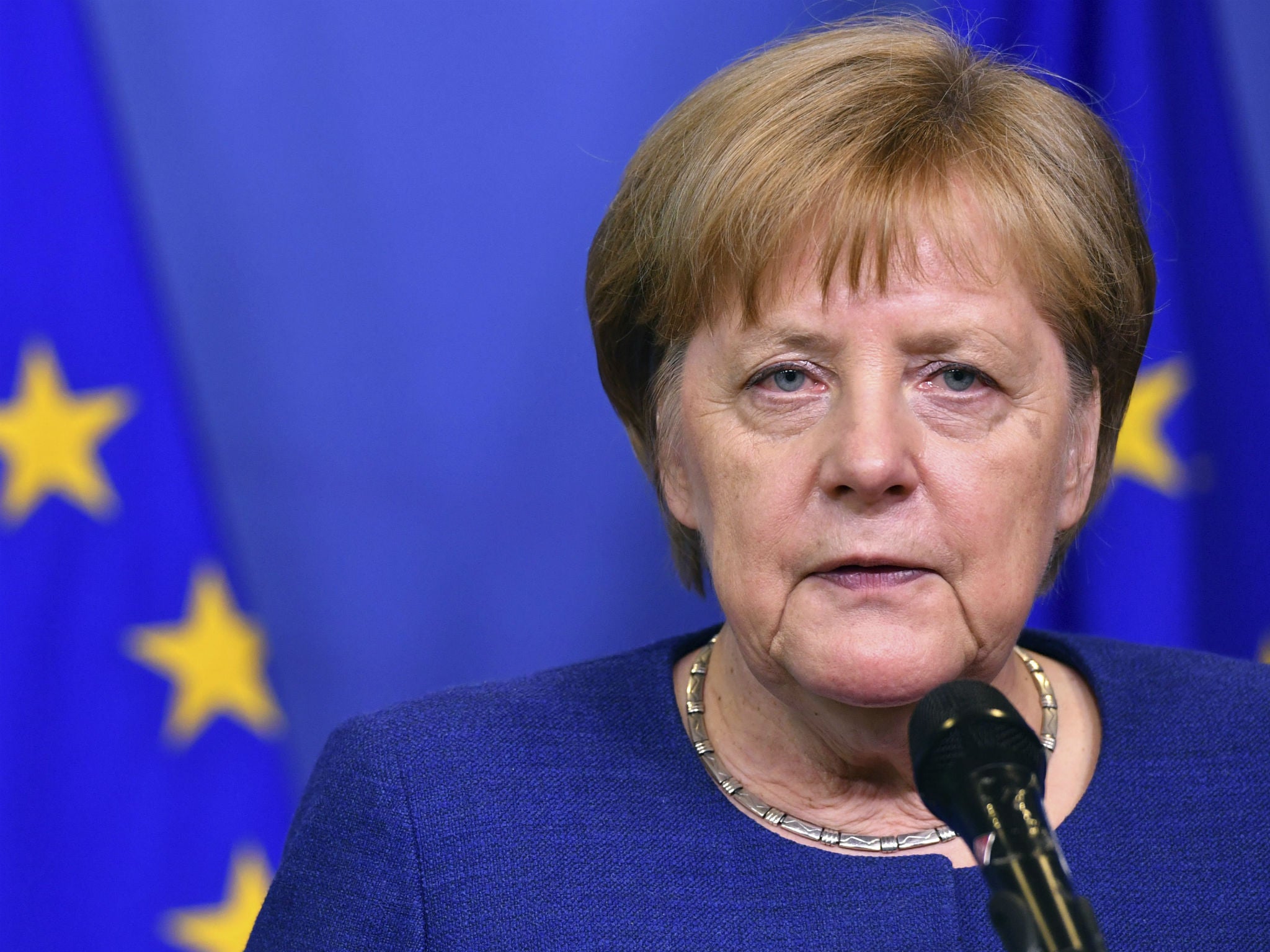German chancellor Angela Merkel secures asylum seeker return deals with 14 EU countries
German government planning 'anchor centres' to process migrants at borders

Your support helps us to tell the story
From reproductive rights to climate change to Big Tech, The Independent is on the ground when the story is developing. Whether it's investigating the financials of Elon Musk's pro-Trump PAC or producing our latest documentary, 'The A Word', which shines a light on the American women fighting for reproductive rights, we know how important it is to parse out the facts from the messaging.
At such a critical moment in US history, we need reporters on the ground. Your donation allows us to keep sending journalists to speak to both sides of the story.
The Independent is trusted by Americans across the entire political spectrum. And unlike many other quality news outlets, we choose not to lock Americans out of our reporting and analysis with paywalls. We believe quality journalism should be available to everyone, paid for by those who can afford it.
Your support makes all the difference.Angela Merkel has reportedly secured agreements with 14 European Union countries to rapidly return some asylum seekers arriving in Germany.
The chancellor is seeking to end a divide in her coalition government over a migration policy that has attracted ire from immigration hardliners.
Ms Merkel has said she also wants to establish “anchor centres” to process migrants at Germany's borders, the DPA news agency reported on Saturday.
The announcements came in a letter Ms Merkel wrote to leaders of her Christian Democratic Union's Bavaria-only sister party, the Christian Social Union, as well as to her junior coalition government partner, the Social Democrats, after she attended a two-day EU summit in Brussels.
Ms Merkel is seeking to end a three-week standoff with her hard-line interior minister Horst Seehofer, who heads the CSU.
Mr Seehofer, whose party faces a state election in the fall, has been threatening to turn away migrants at Germany's border who have already been rejected by the country or who have registered for asylum elsewhere in the EU.
Ms Merkel has rejected that approach, instead insisting on a European-wide solution to migration issues to preserve EU unity. The dispute has raised the possibility of an end to Germany's decades-old conservative alliance between the CSU and Ms Merkel's CDU if Mr Seehofer goes ahead with the unilateral move, which could bring down her government.
Both the CDU and the CSU are holding separate meetings Sunday to discuss Ms Merkel's latest efforts on migration and plot their next steps.
Ms Merkel on Friday came away from an EU summit with agreements from Greece and Spain to take back migrants previously registered in those countries, and an overall agreement by the 28-nation bloc to ease the pressures of migration into Europe.
In the eight-page letter obtained Saturday by DPA, the chancellor said that she had also secured agreement with half of the EU nations to return migrants to them if they had first registered in those countries.
The countries included Hungary, Poland and the Czech Republic, which have all been harsh critics of Ms Merkel's welcoming stance to migrants, as well as Belgium, France, Denmark, Estonia, Finland, Lithuania, Latvia, Luxembourg, the Netherlands, Portugal and Sweden.
In addition, the chancellor threw her support behind establishing large collection centres in Germany for migrants as their cases are processed. DPA reported the centres would be used for migrants who attempt to bypass border controls and for those whose cases don't fall under bilateral return agreements.
Whether the combination of the bilateral measures and EU agreement is enough to placate the CSU is not yet clear.
Top CSU lawmaker Markus Soeder, Bavaria's governor, on Saturday praised the EU agreement as more than his party had expected, but at the same time suggested that it left open the possibility of unilateral national measures as well.
Ms Merkel's office told DPA, however, that interpretation was wrong, saying “unilateral measures at the expense of other countries are not what is meant".
In neighbouring Austria, chancellor Sebastian Kurz again urged a European solution to migration, warning in the Bild newspaper that if the southern German region of Bavaria undertook unilateral measures it would create a “domino effect” as Austria and other EU nations then closed their borders one-by-one.
“Our goal remains a joint European solution with orderly protection of the exterior borders, and centres in third countries,' said Mr Kurz, whose nation took over the rotating EU presidency on Saturday. ”That way we can also preserve a Europe without internal borders."
Additional reporting by AP.
Join our commenting forum
Join thought-provoking conversations, follow other Independent readers and see their replies
Comments